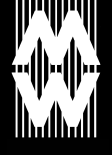![]()
![]()
![]()
![]()
![]()
![]()
![]()
![]()
![]()
![]()
![]()
![]()
![]()
Archives & Museum Informatics
158 Lee Avenue
Toronto Ontario
M4E 2P3 Canada
ph: +1 416-691-2516
fx: +1 416-352-6025
info @ archimuse.com
www.archimuse.com
| |
Search A&MI |
Join
our Mailing List.
Privacy.
published: March 2004
analytic scripts updated:
November 7, 2010

Bringing Less Commonly Spoken Language Resources Online: Galleries of West African Culture and Languages
C. Scott Pennington, Michigan State University, USA
Bartek Plichta, Michigan State university, USA
http://matrix.msu.edu
/ www.historicalvoices.org
/ www.aodl.org
Demonstration: Your Colleagues - 1
The African Online Digital Library seeks to work with scholars in museums, libraries, and African history to adopt emerging best practices of the American digital library community and apply them in an African context. As part of the Historical Voices project (www.historicalvoices.org) MATRIX, the Center for Humane Arts, Letters, and Social Sciences Online, and African Studies at Michigan State University are working with partners in the United States, Canada, and Africa to help museums and archives erect online galleries supporting fuller representations of multiple cultures. In particular, this project focuses on difficult to represent languages and overcoming barriers to online presentations. We propose to deliver a paper detailing research at AODL for bringing language resources online, offering solutions for creating a dynamic, online environment of multimedia holdings.
The project seeks to create online collections to empower researchers while simultaneously enabling project partners to create, with little technical expertise, online gallery presentations of archival holdings previously unavailable without expensive travel or prior research approval. Partners in Africa include L'Institut Fondemental d'Afrique Noire in Dakar, Senegal, the Centre De Recherche Ouest Africain, also in Dakar, and several other institutions in West and South Africa. Initiatives for research at the AODL span the entire process of digitizing, storing, and presenting archived text, images, or multimedia resources as they address the challenges of bringing less spoken languages and culturally sensitive materials online.
Addressing the serious under representation of African languages on the Web has been an early initiative and focus of recent research at the AODL. Project researchers are working to find ways of digitizing and delivering linguistic content on the Web and have concentrated on digital language representation to help preserve these languages, to disseminate information to underserved populations, and to aid language learning. Currently, the AODL has developed UNICODE representations for certain characters in Pulaar, and has adapted Optical Character Recognition programs to recognize scanned Pulaar. AODL has also already brought oral histories conducted in Pulaar online in time-aligned, text encoded formats allowing gallery visitors to view the text in multiple languages to aid in language learning and preservation.
In the course of our research, we have developed tools and methodologies that help represent and preserve African language content (most recently Pulaar) in a robust, open source, digital environment. While the AODL repository itself consists of holdings in multiple languages, presenting these materials online, in their original format and language, presents several challenges. Among these challenges are digitizing texts written in languages without readily available, native OCR software; presenting textual documents from less spoken languages in web browsers across multiple operating systems; and storing and searching text in multiple languages, many with characters not yet represented in digital text systems. Demonstrations from the AODL website, from both current and upcoming galleries, will be presented, and we will discuss the decision-making and workflow process for presenting these resources online.
